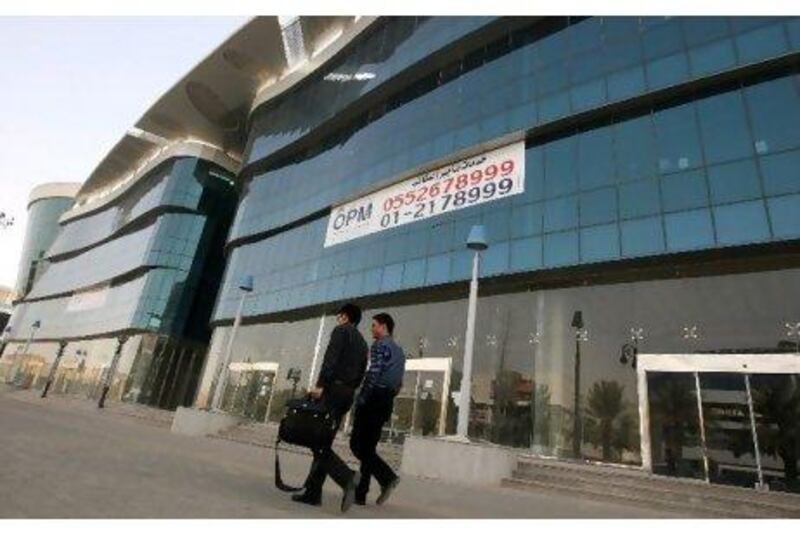Several office towers under construction in Riyadh will not meet international safety standards or have adequate parking, claims the consultancy Jones Lang LaSalle.
As a result, demand for better-quality office space in the Saudi capital remains high despite a surge in building, Jones Lang LaSalle concludes in a report released yesterday during Cityscape Riyadh, a property conference.
Commercial vacancy rates in Riyadh remain at about 10 per cent, and about 200,000 square metres of new space is due for completion this year, according to Jones Lang LaSalle data.
Much of the construction will occur in the suburbs as builders avoid the congestion and high land prices in the city. Strong local demand, especially from government agencies, has compensated for the lack of demand from international companies, it said.
"Only about 25 per cent [of the new space] is relevant supply for multinational companies," said John Harris, the co-head of Jones Lang LaSalle's Saudi Arabia office. "It looks like tonnes of supply but, if it's not quality, it's not that much."
Most of the buildings do not have suitable fire escapes, Mr Harris claimed. In addition, companies typically require at least one parking space per 50 sq metres of space and the new buildings "are not even in the game", he said.
Parking has become a major issue in the Saudi capital as construction absorbs empty lots, he said.
Jones Lang LaSalle's findings echo those of a report released last week from DTZ, an international property adviser, which found a shortage of "quality office space" in Riyadh, despite the economic slowdown.
DTZ rated "international-quality" office space on a variety of factors, including the standard of construction, management, parking and the number of amenities, said Martin Cooper, the head of consulting for DTZ's Middle East office.
"Based on the international benchmarks there is an undersupply in Riyadh," Mr Cooper said.
But that could change as more towers are completed in the next few years, DTZpredicted.
"Riyadh's office market is at a risk of moving into a state of oversupply in the next two to three years as a substantial volume of space" comes on line, DTZ said.
The company said more than 1.25 million sq metres of office space would be constructed in the next few years in the King Abdullah Financial District, a master-planned development north of Riyadh.
"A lot of that space will be international 'Grade A' stock," Mr Cooper said. "The supply and demand over the next 10 years is well balanced but the problem is the supply coming in the next three to five years."
Demand from international companies remains strong, Mr Harris said. Many companies in Riyadh will seek to upgrade their space when the new buildings open, he said. "We're seeing a lot of international companies coming in and restructuring," Mr Harris said. "That bodes very well and will sustain demand."
Office rents are declining in the capital, especially "older buildings and those where landlords are seeking to lease the whole building to a single tenant", Jones Lang LaSalle said in its report. But rents should stabilise "before the supply shock of the mega projects hits the market in 2013".






